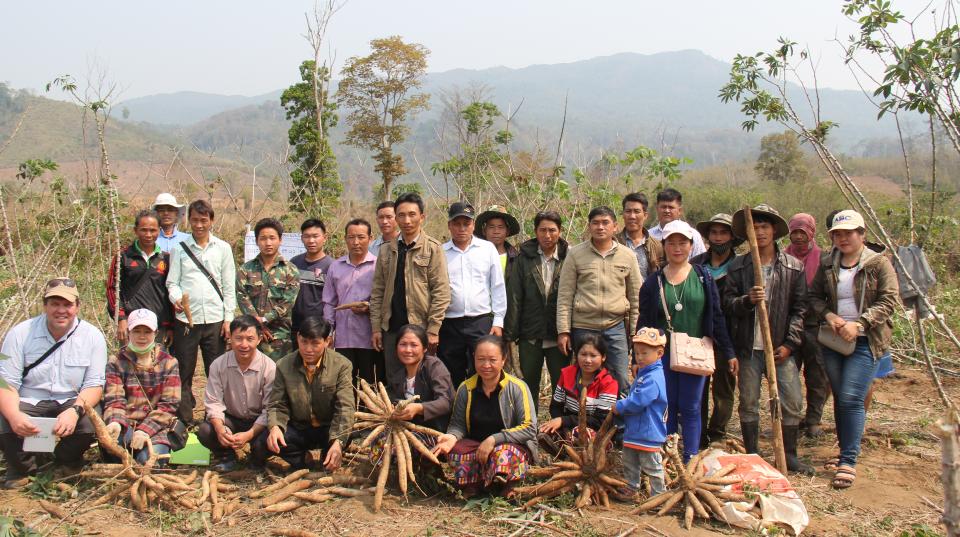Overview
This project aimed to identify the socio-economic conditions under which improved technology and market booms in commercial crops such as cassava could make smallholder farming systems in mainland Southeast Asia more profitable and sustainable and thereby reduce poverty.
Smallholders and large companies in Cambodia and Laos invest in cassava production, supplying value chains across Southeast Asia.
Commercial crops like cassava have increased smallholder cash incomes, but the market outlook for cassava is linked to supply and demand in global starch, grain, and energy markets. This exposes smallholders to new risks and threats to their livelihoods, especially when they have borrowed heavily to embark on this enterprise.
Better value-chain linkages between smallholders and industry actors could make the cassava industry more productive, profitable, and sustainable. A multi-scale appreciation of farming systems and livelihoods, value-chains, and policies and institutions is needed to understand incentives and constraints to adopting improved production and marketing practices critical to developing a sustainable smallholder sector.
Project outcomes
- Assessing the current production, marketing and institutional arrangements for cassava in major agroeconomic zones and value chains in Cambodia and Lao PDR
- Increasing the adoption of improved cassava production, resource management and postharvest practices (including coordination of harvesting and delivery), by strengthening linkages between farmers and research organisations, extension services and industry
- Developing capacity for farming systems research and policy analysis, and promote policy dialogue with the Lao PDR Government on what opportunities are available to grow the industry, and help smallholders improve their livelihoods.




